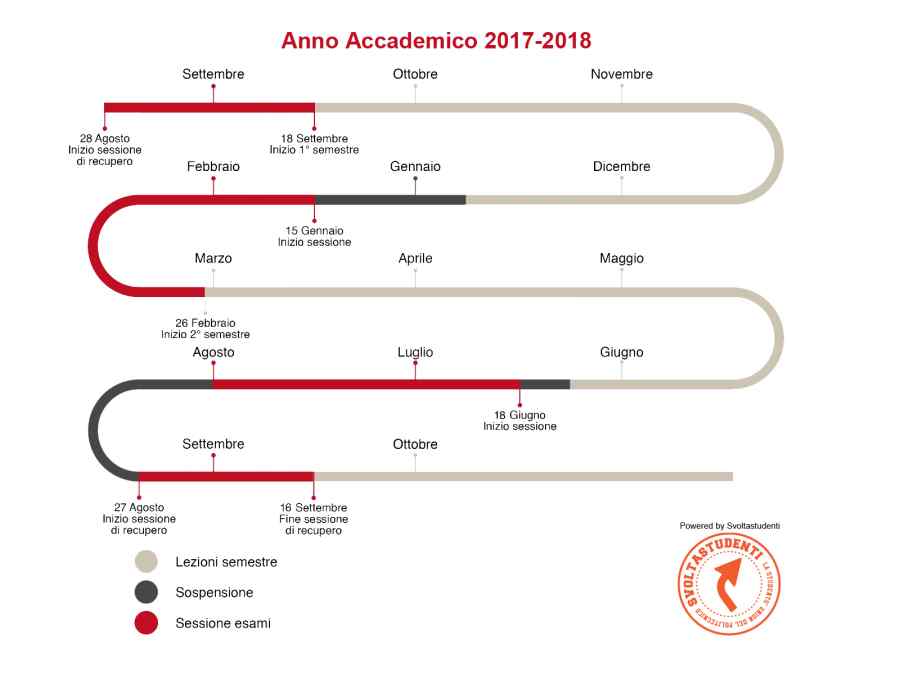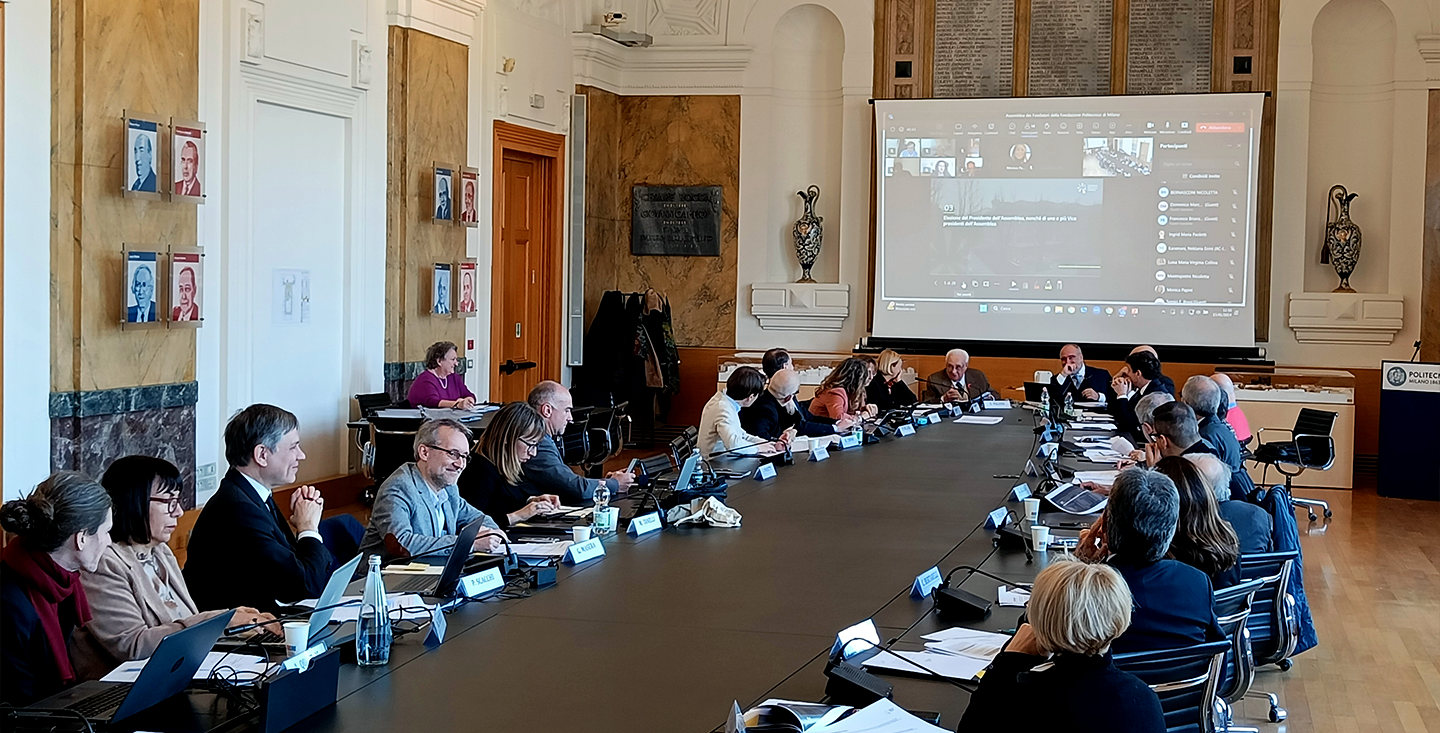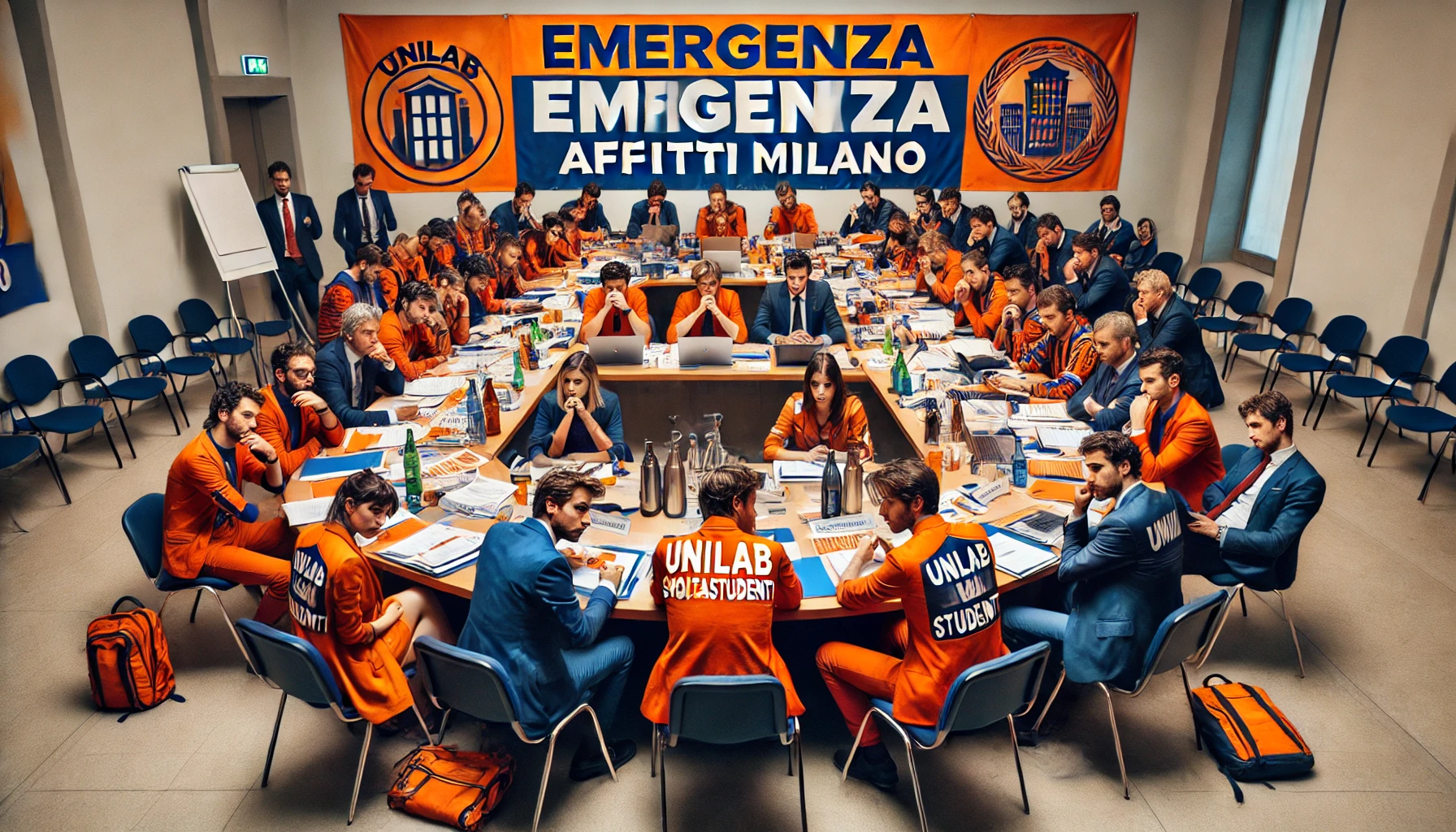In recent weeks the most discussed topic within the Polytechnic has certainly been the modification of the Academic Calendar for the year 2017/2018.
From the very first proposal of prof. Lozza to date, the student representation, supported by several professors, has succeeded in developing some improvements that facilitate the student's life and at the same time maintain the objectives that the new calendar had set itself to achieve.

The first semester will begin on September 18, 2017 and will end at the beginning of the Christmas holidays. The winter session will last 6 weeks and will be preceded by a week of suspension. On February 26, the second semester will begin, which will end on June 8. There will be a week of suspension and 6 weeks of summer session. The recovery session will begin the last week of August and will last three weeks.
Certainly among the most important notes of the new calendar there is the alignment of our lesson periods with the major European universities, especially in northern Europe, with which the Polytechnic carries out the largest number of Erasmus exchanges.
In addition, it was possible to extend the winter (January-February) and summer (June-July) exam sessions to 6 weeks, maintaining for both a week of suspension of teaching just before the start of the session. You will also have more time between one exam and another: at least 15 days will be guaranteed.
One of our proposals, very willingly accepted by the University, was to move the Graduation sessionto after the exams, making all the exams of the September recovery session useful for graduating. In order to do this and avoid losing days of lessons in this new calendar, the degrees will be moved to Saturday, an initiative certainly appreciated by friends and relatives of the graduating students who can more easily participate in the proclamations.
The number of appeals for the first year of Engineering is finally aligned with that of the following years, going from 4 to 5.
The **major criticalities **of the new calendar are: the presence of a very limited period for the tests in itinere, which will be reduced and for each course of study you will have to select a maximum number of courses that will benefit from it (you will therefore have to introduce criteria to decide which to give priority, favoring those more difficult or preparatory to other teachings, such as Analysis 1 and Physics in the first year of Engineering).
Complications have been noted for schools (AUIC) or individual courses (Civil Engineer) that have different calendars for various reasons. Some of these problems have already been solved: the start date of the courses will be postponed to the first year of architecture, adapting to the national test. On the other hand, different solutions are still being analyzed to manage the high number of appeals by Ing. Civile.
Our goal is to ensure that the different conditions previously obtained are preserved.
In the transition period, i.e. the July and September sessions of this year, it will be necessary to change the distribution of the exams, in particular:
- La_ exam session settembre_ will already be structured according to the new calendar, maintaining only one appeal (valid for graduation).
- There is the intention to recover il_ second appeal of settembre_: anticipating it to the summer session (therefore this July) for the exams of the first semester and postponing it to the next one for the exams of the second semester. The final decision rests with the individual schools.
This reform will probably be approved during the next session of the Academic Senate on Monday 20 March and will then have to be implemented by the various schools. Everything will have to be concluded by the month of May to make the changes operational in time for the session.
A reflection on the theme
In almost a year now, we have dedicated ourselves to a work of continuous comparison with the students who follow us, with our professors and with the various university bodies to try to understand the pros and cons of each change and what was the right direction to follow.
We are perfectly aware that, on balance, this calendar does not please all students.
However, the reasons that led the new Rector to propose this change must be understood: from an analysis of the statistics it appears that the tests in progress are not always a real benefit for the students, as there is an increasing tendency "to try them all", as if this were the right way to organize. Instead, it is believed that a key aspect of university life is to appropriately evaluate how to schedule work and then make sure to go to an exam with the awareness of having had an adequate time interval to prepare.
We have decided to take up the challenge of the Rector, convinced that in this way we will have more time to prepare for the exams, but we are ready to carefully monitor the effects that this change to the calendar will have on the lives of the students, sharing as always with you, the benefits and perplexities.
We will update you as soon as there are news. We are strongly interested in any contribution from other students in order to reach the best possible compromise and to be able to continue our studies in peace and serenity.




